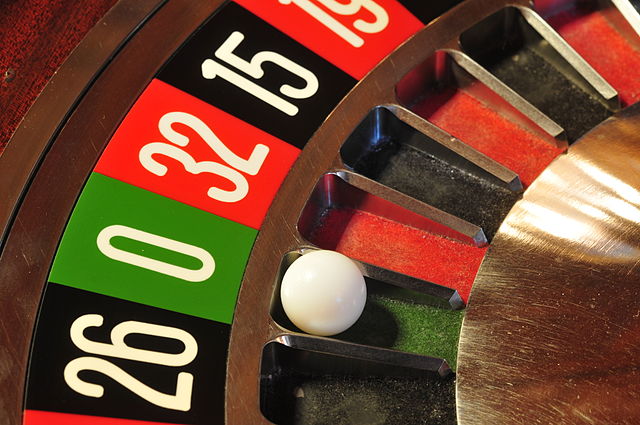
Slot machines are one of the most popular and widely played games in casinos, both online and in land-based establishments. The flashing lights, exciting sounds, and the thrill of potentially hitting a jackpot have kept players coming back for more. But behind all the excitement, there’s one question that many players often wonder about: Can you really beat the odds on a slot machine?
In this blog, we’ll dive into the truth behind slot machines, exploring how they work, what the odds really are, and whether it’s possible to consistently win.
1. How Do Slot Machines Work?
Slot machines, whether physical or online, are powered by a system known as a Random Number Generator (RNG). The RNG is a computer algorithm designed to generate random results every time you spin the reels. The outcome of each spin is completely independent of previous spins, meaning there’s no way to predict or influence what will happen next.
This is a key factor in understanding the odds of winning on a slot machine. Because the results are random, there’s no strategy or technique that can guarantee a win. It’s all about luck.
2. The Role of Return to Player (RTP)
While the RNG determines the outcome of each spin, there’s another factor that influences the odds: Return to Player (RTP). RTP is a percentage that represents the amount of money a slot machine is programmed to return to players over time. For example, if a slot has an RTP of 95%, this means that, on average, the machine will return $95 for every $100 wagered.
It’s important to note that RTP is calculated over a long period and millions of spins, meaning that individual results can vary widely in the short term. A higher RTP generally gives you better odds in the long run, but there’s still no way to guarantee a win. RTP simply gives you an idea of how much of your bet is likely to be returned over time.
3. Volatility and Variance
In addition to RTP, another important factor in understanding slot machine odds is volatility (or variance). Volatility refers to the level of risk associated with a particular slot machine.
- Low Volatility Slots: These tend to offer smaller, more frequent payouts. They are generally better for players who want to play for longer periods without risking large amounts of money. The odds of winning may be better in the short term, but the payouts will likely be smaller.
- High Volatility Slots: These machines offer larger payouts, but they do so less frequently. The risk is higher, and players may experience long periods without winning, but when they do win, the rewards can be much bigger.
Understanding a slot’s volatility can help you choose a game that aligns with your risk tolerance and playing style.
4. Can You Beat the Odds?
The simple truth is that you cannot beat the odds in the traditional sense. Slot machines are games of chance, and there is no way to predict or control the outcome. While some players may experience winning streaks, others may go through long stretches of losses.
There are no proven strategies that can alter the odds in your favor. However, there are a few things you can do to maximize your experience:
- Choose Slots with a High RTP: While it doesn’t guarantee a win, playing slots with a higher RTP can give you better odds in the long run. Look for games with RTP percentages above 95% for a better return.
- Manage Your Bankroll: One of the best ways to make the most of your slot machine experience is to manage your money wisely. Set a budget for your gambling, and stick to it. Avoid chasing losses, and know when it’s time to walk away.
- Take Advantage of Bonuses: Many online casinos offer bonuses such as free spins or matched deposits. These can give you additional chances to play without risking your own money, effectively improving your odds of hitting a win.
5. The Allure of Progressive Jackpots
While the odds of winning on a standard slot machine are not in your favor, progressive jackpots offer a tantalizing opportunity. Progressive slots are linked across a network of machines, and a small percentage of each bet contributes to a growing jackpot.
As a result, the jackpot can grow to life-changing amounts. While the odds of hitting the progressive jackpot are extremely low, the potential payout can be enormous. This is what makes progressive slots so appealing to many players. But remember, the odds of winning the jackpot are slim, and it’s important to play responsibly.
6. The Psychology Behind Slot Machines
Another factor that contributes to the popularity of slot machines is the psychological appeal. Slot machines are designed to be highly engaging, using bright lights, exciting sounds, and rewarding features to keep players hooked. The frequent small wins, bonus rounds, and free spins create a sense of anticipation and excitement, even if the payouts are modest.
This psychological design can lead players to spend more time and money than they initially intended, so it’s crucial to be mindful of your gambling habits and set limits.
7. Is It All Just Luck?
At the end of the day, slot machines are about luck. There’s no strategy that can consistently alter the odds, and no pattern to predict when a machine will pay out. The randomness of the game is what makes it thrilling and unpredictable.
However, it’s important to remember that gambling should always be done for fun. While it’s tempting to dream of hitting a jackpot, the odds are stacked against you. The most responsible way to approach slot machines (and gambling in general) is with the understanding that the outcome is out of your control, and that it’s all about having fun and playing responsibly.
Conclusion
Slot machines are exciting, thrilling, and full of potential rewards, but the truth is that they are games of chance. While factors like RTP, volatility, and progressive jackpots can influence your experience, there’s no way to beat the odds. The key to enjoying slot machines is managing your expectations, playing responsibly, and understanding that gambling is ultimately about luck.
So, can you beat the odds? Probably not. But you can still enjoy the ride and have fun while doing so!


